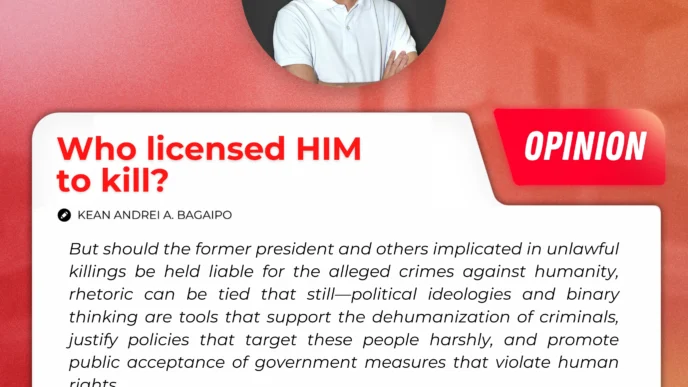By Tanya Onofre
Failure in academia can not be incidental. It can be orchestrated, deliberate, a design rather than a defect. And worse, it can often be deeply rooted beforehand and you can do nothing about it.
This is how the culture of academic cruelty sustains itself, a whole ecosystem in itself. The belief that intelligence is and only is, synonymous with struggle. That knowledge must be earned through pain and that pain should show. That students, in their exhaustion and confusion, must be left to claw their way toward understanding.
To be an honor student is to be assigned a role—one that demands perfection without hesitation. Intelligence, within this framework, is not measured by curiosity or creativity but by unwavering compliance with an arbitrary system and insanely strong resilience. To even stumble or not yet falter is not simply to make a mistake but to betray the illusion that you are above failure.
But what is failure, really? A reflection of effort? Of intelligence? Or is it simply the result of a system designed to ensure that some must fail in order for others to succeed? The pedagogy of failure does not discriminate—it preys on both ends of the spectrum. Those who struggle are left to drown; those who excel are conditioned to believe that their worth is contingent on never slipping below the surface.
This is not education. This is conditioning. A performance of meritocracy where the rules are skewed in favor of those who already know how to play the game.
There is an inherent violence in the way academia policies intellect. How failure is wielded not as a means of growth but as a punishment for deviation. A student asks for clarification but is met with a sigh of impatience. A class average dips too low, but the teacher merely shrugs—it is not their failure to address but the students’ failure to keep up. It keeps people curious, “he seems genuinely proud we failed?”
There is something almost perverse in the way some teachers relish in a student’s downfall—the way a failing mark is returned with a knowing glance, the smugness of a red pen’s stroke slicing through another attempt at comprehension. It is a ritual, a performance of authority, one that demands reverence through suffering. After all, what is learning if not a test of endurance? If you break, you were simply not strong enough to begin with.
The idea that “not everyone is meant to succeed” is repeated like scripture, an unchallenged truth. But why? Why must education operate as a thinning process, as though its purpose is to weed out rather than uplift? Why is struggle romanticized, suffering made a prerequisite to success?
What if learning wasn’t a test of resilience? What if intelligence wasn’t measured by one’s ability to endure academic cruelty?
There is no pride in a system that produces students who fear learning. No honor in educators who derive satisfaction from failure. No justification for a structure that confuses rigor with cruelty.
Learning should challenge, yes. It should demand effort, perseverance, and discipline. But it should not break students just to prove a point. It should not be a contest of survival. It should not be a battlefield where only the most conditioned emerge unscathed.
Education should be a space for transformation, for the pursuit of knowledge unshackled from the fear of inadequacy. It should recognize that failure is not an indictment of one’s worth but a part of growth.
But for that to happen, the pedagogy of failure must first be unlearned.




